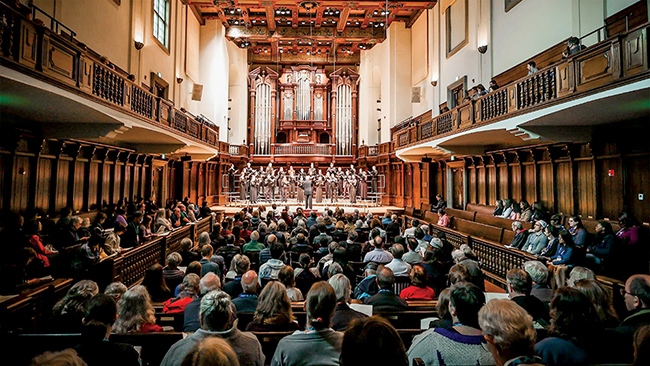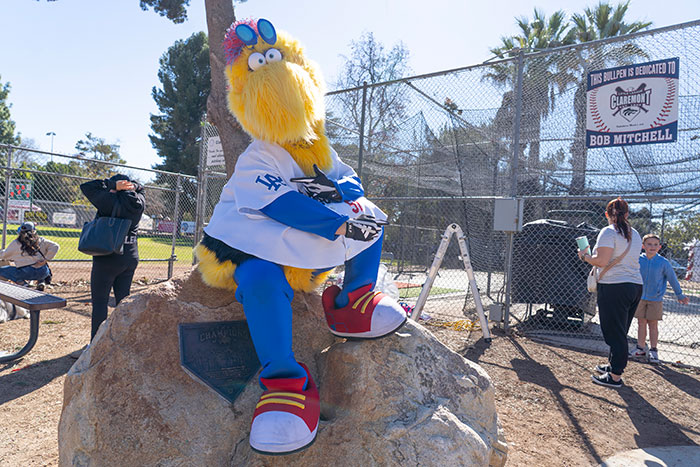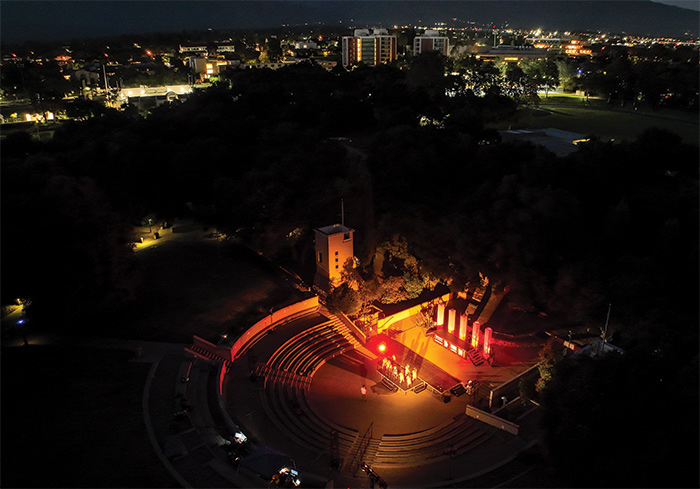Helping heal veterans, naturally: Heroes Project breaks ground at Mt. Baldy

Tim Medvetz, founder of The Heroes Project. Photo/courtesy of The Heroes Project
by Lisa Butterworth
Tucked into one of Mt. Baldy’s craggy nooks is Ice House Canyon, featuring a trail renowned among avid hikers and mountaineers; it’s also home to the dilapidated Ice House Canyon Resort — an historic lodge, built in 1921 by Clarence Chapman, and its surrounding cabins.
The resort was a happening place during Prohibition, and despite several natural disasters — floods, an avalanche — that destroyed cabins, the lodge remained a popular destination until it burned down in 1988. What is left of the buildings, many now decorated with graffiti and littered with bottles, has remained abandoned since. But next week, at noon on Friday, May 23, a groundbreaking ceremony will signal a new era for the site, which is set to become California’s first and only Veteran Retreat Center.
The center, which will provide veterans a place of rest and rejuvenation and the public some much-needed amenities, is the passion project of Tim Medvetz. It’s also the next evolution of his organization, The Heroes Project, which offers combat-wounded veterans a unique avenue of recovery: climbing the world’s most formidable mountains.

Tim Medvetz, founder of The Heroes Project. Photo/courtesy of The Heroes Project
Twenty-three years ago, Medvetz, now 54, was in a devastating motorcycle accident. “I broke pretty much every bone in my body,” he said. After months in the hospital and several more in a wheelchair, he began his rehabilitation. “I don’t know, the physical therapy, it was like a death sentence walking into those places for me. I needed more.”
Medvetz was the kind of guy who walked on the wild side. He built motorcycles, had lived in Brazil where he dabbled in cage fighting, and spent a decade as a bouncer in New York City. Being pushed around in a wheelchair shook his very sense of self. He wasn’t used to being told what he couldn’t and wouldn’t be able to do again.
It was around this time that Medvetz picked up “Into Thin Air,” Jon Krakauer’s bestselling account of getting caught in a deadly storm while climbing Mt. Everest. “It just did something to me,” he said. “I got this idea that that’s going to be my vehicle to recovery: I’m going to go climb Everest and prove everybody wrong, prove the doctors wrong.”
After three years of mountaineering courses and training in both the Himalayas and the Andes, Medvetz “took off to Nepal and summited Everest. And when I got back,” he said, “it was like, well, I just did the impossible. What’s next?”
That question was answered serendipitously when Medvetz caught a Veteran’s Day special on television that featured injured vets speaking about their service and experience. “One guy was burned beyond recognition, and he’s talking about how he didn’t regret one day, and he’d go back and serve his country and what a proud American he was,” Medvetz said. “I was getting all choked up, I was so inspired by this guy. And then a light bulb went off.”
Medvetz is quick to make clear that he doesn’t equate his motorcycle accident to injuries suffered in a war zone, and the PTSD that comes with that experience. “But I could definitely relate to what it’s like going from the hospital bed, being pushed around in a wheelchair, people feeling sorry for you, and trying to get your life back, to become a man again,” he said. “My vehicle, which got me back to that person again, was climbing Mt. Everest. So I figured maybe I’ve got something to offer these guys and show ‘em how I did it.”
In 2009, Medvetz embarked on his first expedition, guiding a young veteran, Keith Deutsch, whose leg had been amputated above the knee after his convoy was attacked in Baghdad. Their arduous journey culminated in summiting the highest peak in Europe, Russia’s Mount Elbrus. “[Keith] took those last hundred steps and he got to the summit, and he threw his arms up and he was screaming and yelling and crying, ‘I did it! I did it!’” Medvetz said. “That was the moment when The Heroes Project was born.”
Since then, Medvetz and The Heroes Project have helped about 50 injured veterans scale some of the world’s highest mountains, and much of the training happens right here in the Angeles National Forest. That’s what drove Medvetz to realize how helpful it would be to have a home base at Mt. Baldy — and he pegged the old Ice House Canyon Resort. Its trailhead location would also benefit the hiking community, especially with the outfitting and guiding company and mountain safety education the center will offer. This dual purpose helped tip the scales in Medvetz’s favor, and after more than five years of federal bureaucracy navigation and negotiations with the U.S. Forest Service, Medvetz received the permit that makes The Veteran Retreat Center groundbreaking possible.
The site will feature a general store, cabins to serve eight to 10 veterans and their families at a time, as well as a rock climbing wall, a rappel tower, and educational opportunities for the public, including classes on map and compass reading, local wildlife and vegetation, backpacking skills, “leave no trace” principles, rock climbing, and mountaineering. “We’re designing it to look like it looked in 1920,” Medvetz said. “It’s not going to be new and fancy. It’s going to be rustic log cabins.” And in another nod to Ice House Canyon’s history, the grandson and great-grandson of Clarence Chapman, the lodge’s original builder, are leading the site’s excavation and grading.
Medvetz expects the center to open in 18 to 24 months, a timeline that depends on further fundraising; The Heroes Project will soon launch a capital campaign to ensure all the plans for the Veteran Retreat Center come to fruition. And the sooner the better. “Those stats you see, about 22 veterans dying from suicide every day, those are real numbers,” Medvetz said. “We’re seeing a lot of PTSD, we’re seeing a lot of homelessness, drug addiction — the aftermath of being in war. So there’s a need for this.”
Medvetz, who now lives in the Mt. Baldy community, hopes the center and its awe-inspiring environment will give veterans some peace and quiet, encouraging them “to disconnect from all the stress and all the noise from down the hill.”
And what does he hope they’ll take away from this immersion? “That they don’t need to go to the doctor and get a prescription to cure what they’re dealing with, whether it’s mental, emotional, spiritual, physical,” Medvetz says. “It is getting outdoors. Nature is the greatest healer. And sometimes it just takes one person, one organization to lead the way.”
More information about The Heroes Project and the open to the public May 23 groundbreaking ceremony in Mt. Baldy is at theheroesproject.org/veteranretreatcenter.








0 Comments